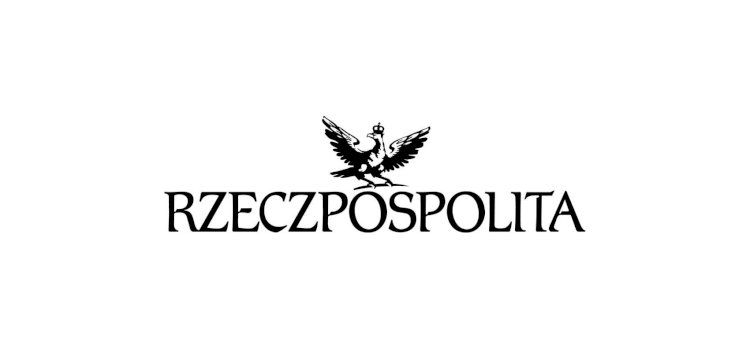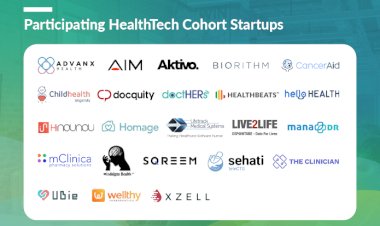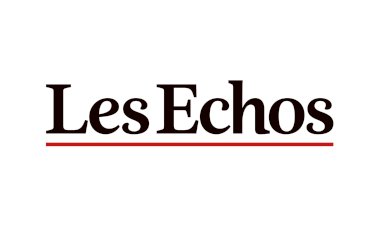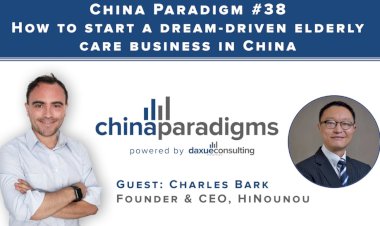Interview with Polish journalist: The silver tsunami is coming

Rzeczpospolita journalist, Paweł Łepkowski, talks with French inventor and entrepreneur Charles Bark. Charles is the founder and CEO of HiNounou Intelligent Robot company – a company revolutionizing care of the elderly.
RZ: You have conceptualized a solution that uses artificial intelligence to care for the elderly, this idea gives rise to a lot of feelings, considering there is a currently a worrying decrease in senior family care. Your solution goes a step further, entrusting robots with the care of seniors. How did you come to that?
CB: My mother, who is a retired doctor, currently lives on her own, in Korea, where she grew up. One day in 2013, during a telephone conversation, I asked her how she was feeling. As usual, she replied, “I’m fine, don’t worry about me.” A few days later, however, my brother rang to inform me that our mother had suffered a fall and had to be taken to the hospital. I was in shock and started wondering what the next call would bring, what if it it’s too late and nothing can be done?
Looking around me in China, I started realizing that I’m not alone in this situation. Nearly half of Shanghai and Beijing’s populations are senior citizens.
Since I first arrived in China in 1996, I have seen tremendous economic progress. China has become the second largest economy in the world. When I came to Shanghai over 12 years ago, access to the internet, a mobile phone and a personal computer were not common. Whereas today’s China has the largest global concentration of mobile phone users and computer technologies.
However, regardless of this progress, China is threatened by a huge collapse by a phenomenon that can be called the silver tsunami. Over 200 million people in China are aged 60 and over, that’s 16% of the population. Two-thirds of seniors live in so-called empty nests, living alone since their single child left the province and went on to big cities for their studies and/or work. There is already a huge lack of over 10 million professional caregivers for the elderly, this situation will only worsen drastically in the future.
RZ: The population of seniors in China corresponds to nearly half the population of the European Union. It can be said that the Chinese mainland has the largest concentration of seniors on our planet.
CB: Yes, it’s true. By 2050, about 40 percent of China’s population will be over 60 years old – that’s nearly half a billion people! No country is equipped to solve the problem of caring for nearly half of its citizens, of whom as many as 60 percents will require daily care.
The policy of one child is beginning to unintentionally reflect the hiccups of the Chinese economy.
RZ: The unintentional ripples of China’s one-child policy are beginning to show on its economy?
CB: Yes, the one-child policy, makes it quite difficult for a single child, usually living in another province to care for their parents and grandparents. Leaving an only child to sometimes have to take care of over six older people, creates a huge financial challenge especially since the state only returns 50 percent. What's more, because the average healthy life expectancy of is 68 years, insurance companies are not willing to insure seniors above this age.
RZ: How would you like to solve this problem?
CB: As an engineer, I asked myself: could I check my mother's health as easily as I check the weather forecast on my smartphone? As in the case of weather, could I then receive a health forecast? Can I create a solution that will help me and other people to take care of my elderly parents remotely?
These questions resulting from my own pained experience have provoked me to conceptualize a system that will enable seniors to live longer, healthier and happier in their own homes. All this has motivated me to gather the best experts and researchers in the technology industry, I found the right people among university graduates from world famous schools like UTC in France, UTSEUS in China, business schools HEC Paris and the University of Oxford. We have carried out extensive research in the fields of preventive healthcare and robotics, artificial intelligence and data analysis. I have also received invaluable support from my fellow entrepreneurs at La French Tech and the Oxford and Cambridge Club in Shanghai. We have spent a combined 12 years on research in four countries across the world.
The company we created – HiNounou Intelligent Robot – has quickly become known in China, Hong Kong and Singapore. We aim to create technology that will help seniors lead healthier and longer lives at home, at the same time providing comfort and peace of mind to their families who live far away from them.
RZ: I get the impression that you drew inspiration from science fiction movies. How will it look in reality?
CB: Our idea of helping seniors combines different elements. The base is the Home Wellness Kit, which consists of a fully digital diagnostic service. The kit’s IoT based medical devices provide regular visibility of a senior’s vital signs and the kit also provides DNA testing to understand their genetic risks. The data is made visible via the HiNounou app, which can also be shared with the senior’s family members, caregivers or a local hospital. The solution is based on AI and the blockchain powered platform ensures the security of their health data. As the Home Wellness Kit collects and analyzes their health data on a daily basis, we provide a way to reduce risks of sudden and chronic diseases.
Secondly, to overcome the shortage of professional caregivers, we have invested in robotics. This has led to design our own robot, an AI-enhanced Companion Robot. Today, its job is to connect seniors with their loved ones by using an AI immersive 360 ° technology. Thanks to the speech and facial recognition functions, it significantly improves communication with video calls. Soon our robot will be able to act as a companion for the elderly, the prototype is now in the production phase.
RZ: The question that immediately arises is whether machines are able to provide the level of professional care that trained nurses offer?
CB: I believe that intelligent robots will be able to supplement the shortage of professional caregivers if their inventors remain focused on providing a better life for seniors. In addition, this will also help seniors look after their own conditions. People using our solution are rewarded with tokens/loyalty points for carrying out their daily checkups with the IoT medical devices and for maintaining healthy lifestyles. For the sake of data security, the tokens and the health data are stored on the aforementioned blockchain platform.
To strengthen the care and protection in the case of accidents, we have created the first accessible insurance plans for seniors up to the age of 100 years as well as a 24/7 telemedecine hotline, in partnership with AXA and China’s largest insurance provider PingAn.
RZ: How did Chinese public react to your initiative?
CB: The reaction of the Chinese market has been amazingly positive. Within a few months, we have provided 3000 seniors with the Home Wellness Kit, although this is just a drop in the ocean of needs, considering how many seniors will soon need help. To meet the global demand, we are getting an additional $ 12 million investment and we hope to extend our services to all of Asia.
RZ: So, what is the difference between your idea and what health care systems offer in different countries?
CB: Today, most healthcare systems around the world are unadapted to meet the needs of seniors who often suffer from chronic diseases and live alone. Health systems focus on curing rather than prevention. Our aim is to help seniors prevent the onset of chronic disease risks while also providing peace of mind to their families. Globally the population over 60 years old is growing faster than all younger age groups. According to the WHO data from 2017, the number of people aged 60 and over is set to double by 2050.
This dynamic aging of the population will become of the most significant social transformations of the 21st century. All this leads to the dangerous phenomenon of the silver tsunami, in order to tackle it, we require not only breakthrough innovative solutions but also a revolutionary approach to healthcare. I believe that the right solutions will be worked out through the cooperation of scientific communities, robotics-based startups and the system of a distributed database, and powerful corporations will shift to build a better world for seniors and their families.
CONFERENCE IN WARSAW
Charles Bark was a special guest at the September Singularity at Warsaw Chapter and a speaker at last year's Masters & Robots conference. Both events are organized by the Digital University Foundation. Masters & Robots is one of the most important events in the region dedicated to digital transformation and its impact on business. The conference takes place in Warsaw (this year 13-15 November 2018) and brings together the creators of new technologies from around the world. During the event, there are lectures, panels and closed workshops in the field of, among others, development of artificial intelligence, blockchain, cybersecurity, space exploration, biotechnology, transhumanism and the future of media and food. An element of the event is also the meeting of the Polish branch of Singularity University. The main partner of Masters & Robots is Sebastian Kulczyk. The sponsors of the event are Deloitte, PGNiG, Siemens, PLL LOT and the DZP law firm. The honorary patronage over the event was: Ministry of Investment and Development, Ministry of Digitization, the capital city of Warsaw and the French-Polish Chamber of Commerce.

 angie
angie 





















